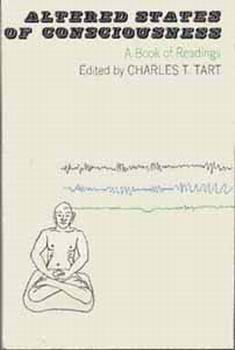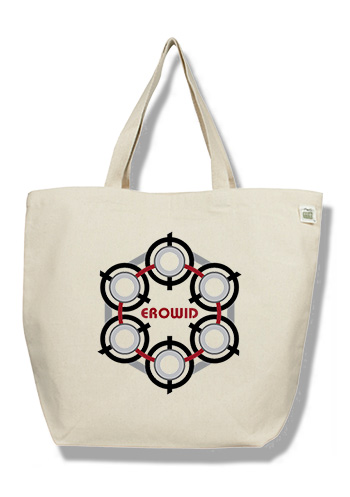
[an error occurred while processing this directive]
The editor combines a humanistic approach, which includes an awareness of the great potential richness in human experience indicated by ASCs, with the disciplined precision of a scientist. He brings a professional point of view to the observation of the increasingly widespread use and resultant effects of drugs, Yoga, self-hypnosis, and other means of producing ASCs which are popularly regarded as as comprising either a major social problem or a sign of positive change in a materialistic civilization. Studies of ASCs produced by psychedelic drugs, for example, are placed in this book within a broad, illuminating perspective that includes papers on mystical experiences, hypnagogic (between waking and sleeping) states, dream consciousness, meditation, hypnosis, and brain wave feedback producing states.
One of the most productive ways of studying consciousness is to alter it qualitatively, i.e., to produce an altered state of consciousness in which the functional relations of various aspects of mental activity take on a new configuration. Such ASCs are of considerable interest and appeal in and of themselves, as well as for the light they cast on normal consciousness. Professor Tart has brought together 35 scientific papers which illustrate the variety of ASCs and their effects, which describe some of the techniques, both ancient and modern, for producing ASCs and, perhaps most important, which show that ASCs can be studied scientifically without destroying their inherent human richness.
REVIEWS, EXCERPTS, & COMMENTS #
BACK COVER #
The study of the nature of human consciousness, a dormant and often taboo topic in psychology, is once again developing into a respected field of inquiry. This is the first book to provide a broad, scientific point of view for the investigation of a variety of special states of consciousness.The editor combines a humanistic approach, which includes an awareness of the great potential richness in human experience indicated by ASCs, with the disciplined precision of a scientist. He brings a professional point of view to the observation of the increasingly widespread use and resultant effects of drugs, Yoga, self-hypnosis, and other means of producing ASCs which are popularly regarded as as comprising either a major social problem or a sign of positive change in a materialistic civilization. Studies of ASCs produced by psychedelic drugs, for example, are placed in this book within a broad, illuminating perspective that includes papers on mystical experiences, hypnagogic (between waking and sleeping) states, dream consciousness, meditation, hypnosis, and brain wave feedback producing states.
One of the most productive ways of studying consciousness is to alter it qualitatively, i.e., to produce an altered state of consciousness in which the functional relations of various aspects of mental activity take on a new configuration. Such ASCs are of considerable interest and appeal in and of themselves, as well as for the light they cast on normal consciousness. Professor Tart has brought together 35 scientific papers which illustrate the variety of ASCs and their effects, which describe some of the techniques, both ancient and modern, for producing ASCs and, perhaps most important, which show that ASCs can be studied scientifically without destroying their inherent human richness.


